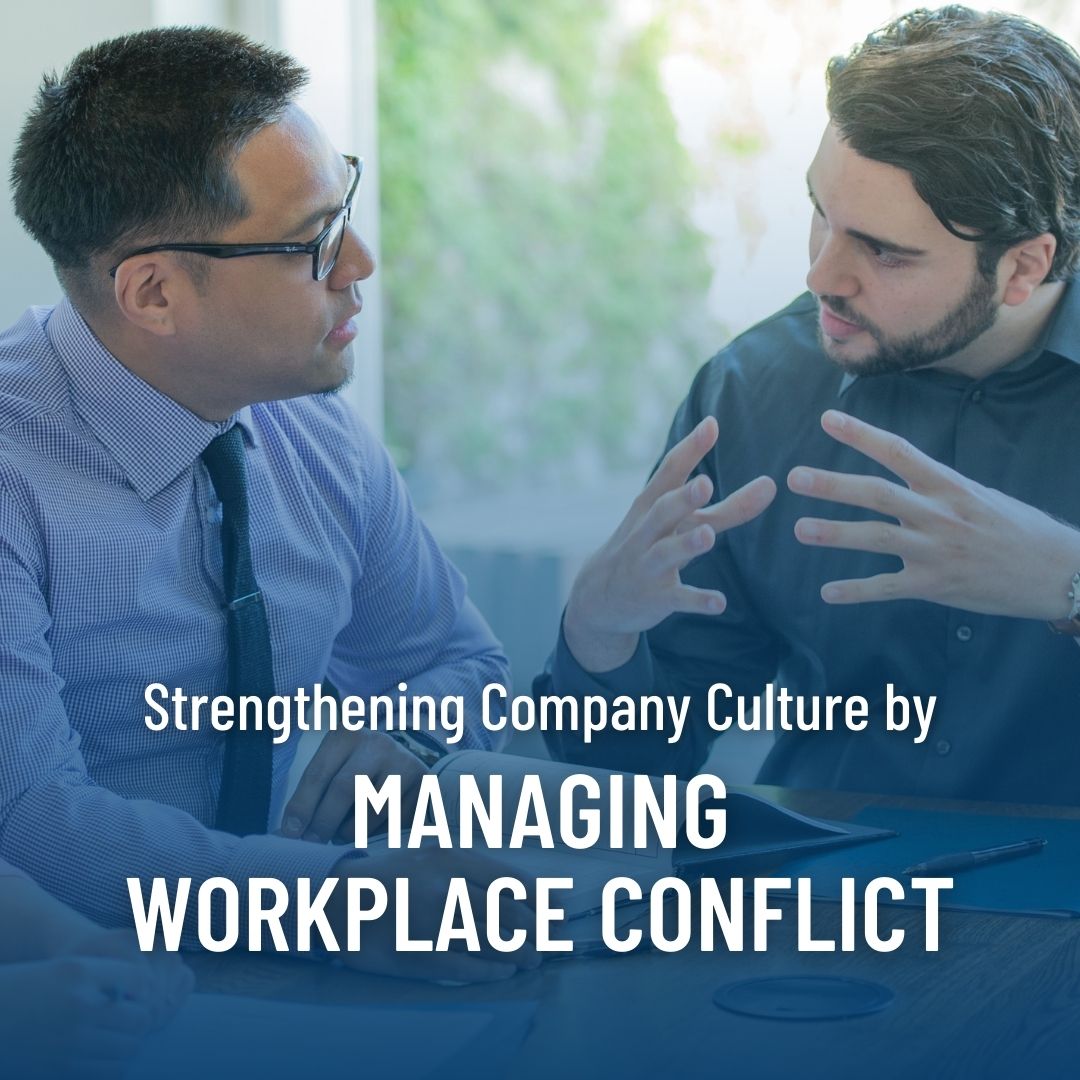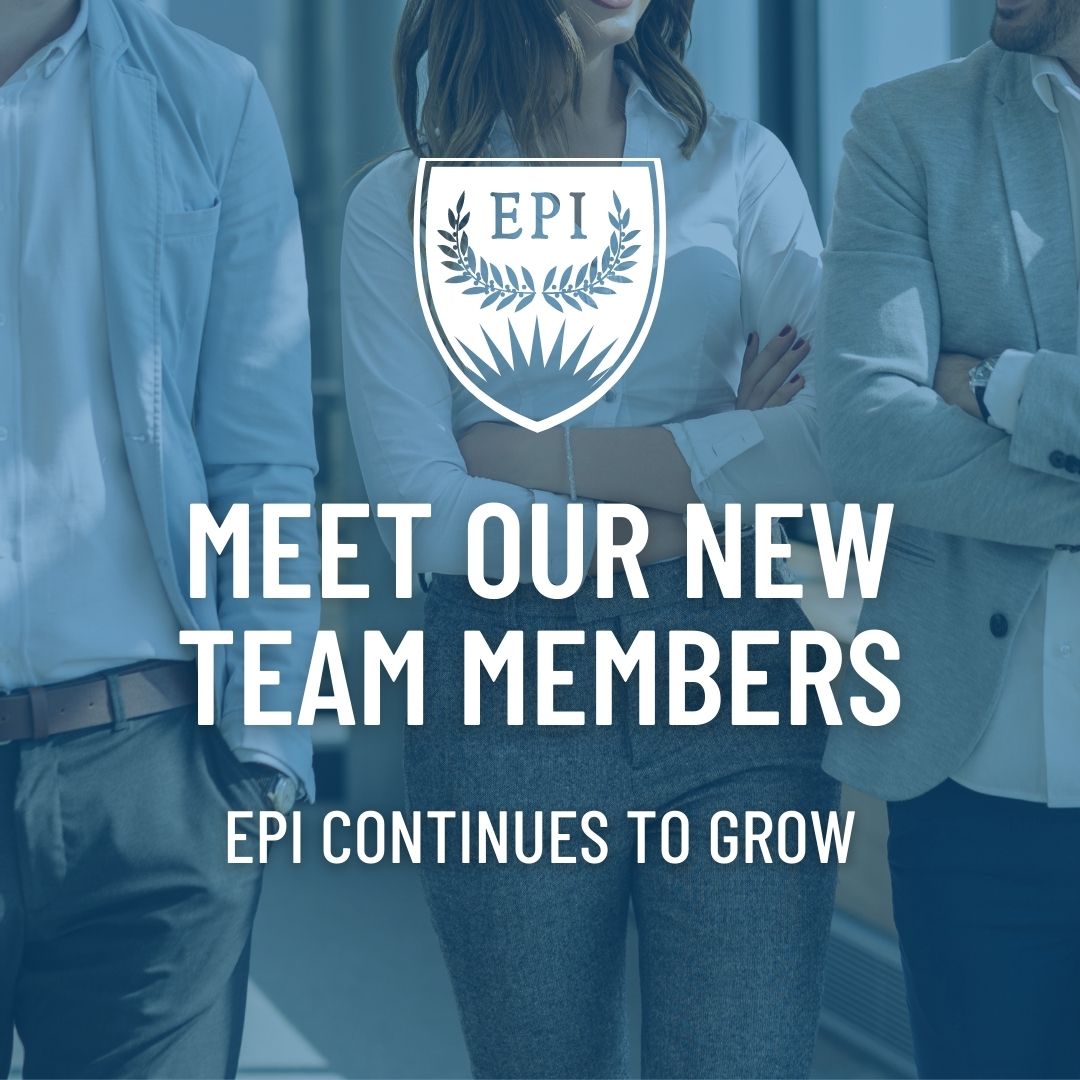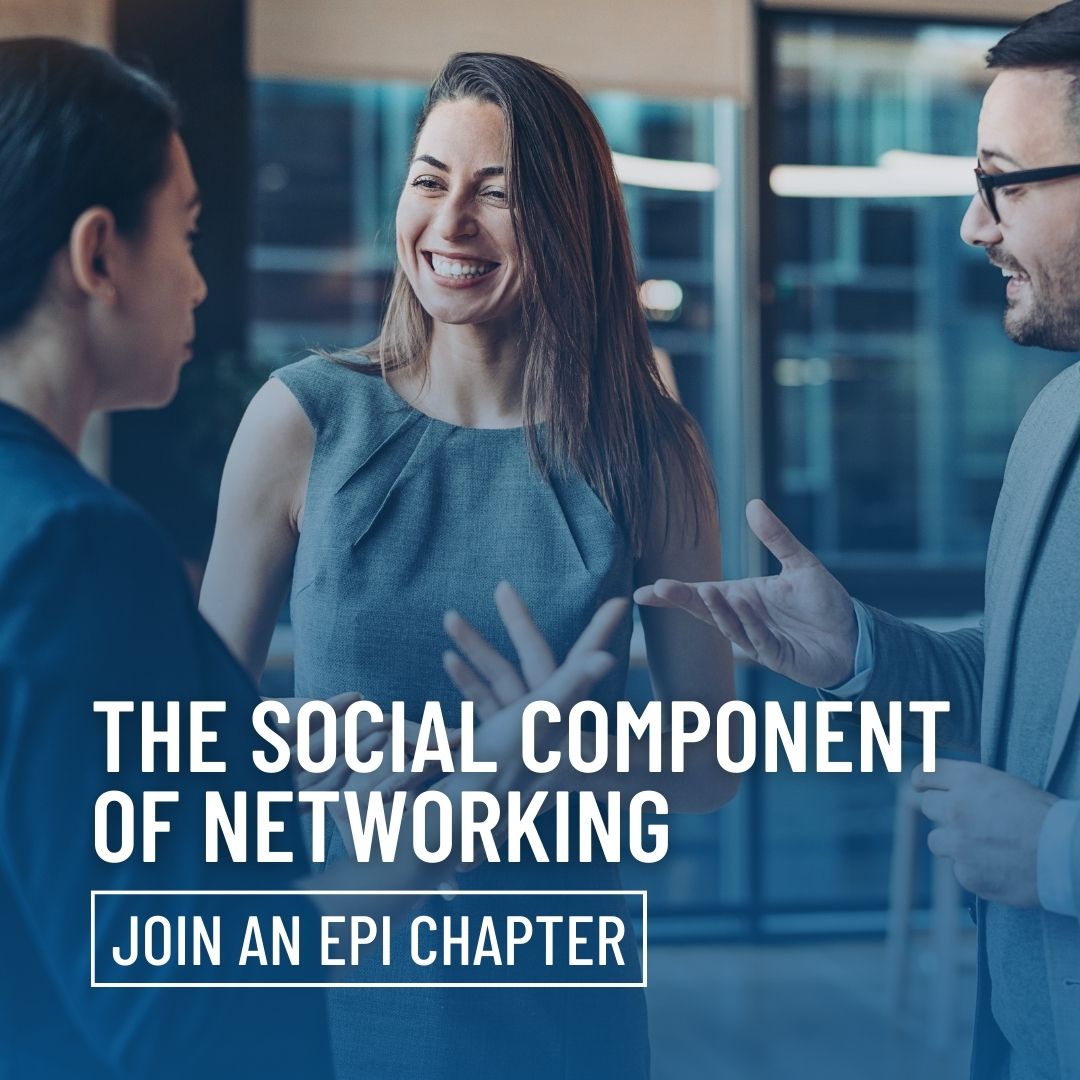
THE EXIT PLANNING BLOG
Keep up-to-date with exit planning, succession planning, industry trends, unique specialty insights, and useful content for professional advisors and business owners.
Share this
Building Company Culture by Managing Workplace Conflict
by Colleen Kowalski on April 19, 2022

The word “conflict” has a bad reputation. Conflict brings to mind memories of anger, distrust, sadness, and frustration. However, from conflict can come amazing new ideas, creative solutions, and an environment where all voices are heard.
April is Workplace Conflict Month. We thought we would share how your social and human capital, company culture, and core values can turn destructive conflict into productive conflict.
“The aim of argument and of discussion, should not be victory, but progress.” – Joseph Joubert
Arguments for the sake of arguing and winning are not beneficial in the workplace. The stronger an organization’s Social Capital, the less likely a common dispute will turn into an unmanageable conflict. Social Capital represents your operations, your brand, the way your team works, and daily communications among employees and customers. In simpler terms, your Social Capital represents your company culture. If you have a culture of collaboration and strong communication, conflicting ideas would be met with a friendly debate instead of immediately shutting down opposing viewpoints.
One of the main components of strong Social Capital in your business is having clearly defined and lived Core Values. These core values impact the way a team works together, determine the culture of the organization, and embody the purpose and vision of the company. This kind of thinking is evident in the Exit Planning Institute and is represented by our core values. Not only did the entire team take part in the formation of our new core values, but each one highlights the importance of working collaboratively and the power of effective conflict.
Exit Planning Institute Core Values
Put it on The Table
Taking conversations and topics that normally get discussed “under the table” and bringing them to light. We believe the path to building and maintaining trust is through a commitment to open, honest, and respectful communication amongst each other. We believe in delivering the mail to the right address. We believe in having no meetings after the meeting. We accept our teammates for who they are. No issue or subject is too difficult to talk through with this framework. It’s our way of honoring transparency.
Collaboration
We are a team built on support, empathy, active listening, and respectful communication. We have the desire to truly understand one another in the process.
Creativity
We provide the freedom to problem solve, innovate, and encourage risk-taking and curiosity. Through creative thinking and the ability to innovate, we move our organization and ourselves forward.
Purposeful Growth
Our efforts to educate and challenge don’t just stop with being a business professional. We embrace change and challenge the status quo. Practice, training, and development of ourselves professionally and personally give us the foundation to drive forward, execute, and achieve greatness.
Life Balance
We put a premium on the quality of life and deep relationships. To achieve this, we invest in each other by taking an honest interest in getting to know our teammates. We balance our work with an active personal life and know that those personal experiences refill our tank and lead us to success in the workplace.
Accountability with Authority
We promote independence, assign accountability, and empower our team with the right authority to get the job done. We understand that mistakes happen and we take responsibility, learn, and move forward. Many branching paths appear when one takes ownership of their duties.
Make it Count
Hard work got us here and hard work will get us to the next milestone. Giving 100% effort is critical to the team’s success. We seize the opportunity and go all in and do the work.
“Conflict can destroy a team which hasn’t spent time learning to deal with it.” – Thomas Isgar
People are everything. EPI President, Scott Snider, says, “I don’t care how good your product or processes are, if you don’t have the right people – you’re screwed.” The Human Capital in your business is one of the most difficult to navigate and one of the most important. Every member of your team represents a portion of your Human Capital. From part-time hourly employees to the President and CEO. The stronger an organization’s team, the more open they will feel with their ideas.
Mike Myatt writes in Forbes, “Divergent positions addressed properly can stimulate innovation and learning in ways like minds can’t even imagine. Smart leaders look for the upside in all differing opinions.” Good ideas come out of the safety to have a genuine discussion without fear of repercussion.
“A good manager doesn’t try to eliminate conflict; he tries to keep it from wasting the energies of his people. If you’re the boss and your people fight you openly when they think that you are wrong–that’s healthy.” – Robert Townsend
Adam Grant writes in Think Again, “How well we take criticism can depend as much on our relationship with the messenger as it does on the message. In one experiment, people were at least 40% more receptive to criticism after they were told ‘I’m giving you these comments because I have very high expectations and I know that you can reach them.’ It’s surprisingly easy to hear a hard truth when it comes from someone who believes in your potential and cares about your success.”
At EPI, the way in which we live our core values impacts the communication between managers and their teams. By “putting it on the table” and having “accountability with authority” all members of the EPI team are empowered to make a lasting impact on the organization.
When managers and executives model effective conflict resolution, the rest of the organization will follow. This not only greatly lessens workplace conflict, but strengthens the Human and Social Capital in your business, thus improving your business value overall.
Share this
- Blog (548)
- CEPA (431)
- exit planning (249)
- CEPA community (188)
- Business Owner (175)
- Exit Planning Summit (99)
- EPI Chapter Network (89)
- Value Acceleration Methodology (81)
- Exit Planning Partner Network (76)
- EPI Announcement (50)
- Content (48)
- Webinars (37)
- Excellence in Exit Planning Awards (34)
- Marketing (30)
- 2024 Exit Planning Summit (28)
- 5 Stages of Value Maturity (26)
- Books (24)
- EPI Academy (24)
- EPI Team (22)
- Exit Planning Teams (22)
- Leadership (21)
- 2023 Exit Planning Summit (20)
- family business (20)
- women in business (19)
- Intangible Capital (18)
- Exit Options (17)
- Black Friday (16)
- CPA (15)
- Walking to Destiny (15)
- Chapters (14)
- State of Owner Readiness (14)
- charitable intent (13)
- Chris Snider (12)
- National Accounts (12)
- Small business (12)
- personal planning (12)
- Financial Advisors (11)
- Season of Deals (9)
- 5 Ds (8)
- About us (8)
- Podcast (8)
- Scott Snider (8)
- Insiders Bash (7)
- Christmas (6)
- Exit Planning Content Library (6)
- Case Studies (5)
- Owner Roundtables (5)
- Three Legs of the Stool (5)
- Value Advisors (5)
- financial planning (5)
- Awards (4)
- Circle of Excellence (4)
- EPI Thought Leadership Council (4)
- Exit & Succession (4)
- Five Ds (4)
- executive training (4)
- DriveValue (3)
- Owners Forum (3)
- author (3)
- forbes (3)
- Exit Is Now Podcast (2)
- Peter Christman (2)
- Veteran (2)
- Whitepapers (2)
- Annual Exit (1)
- Business Owners Forum (1)
- SOOR (1)
- business consultants (1)
Subscribe by email
RELATED ARTICLES






